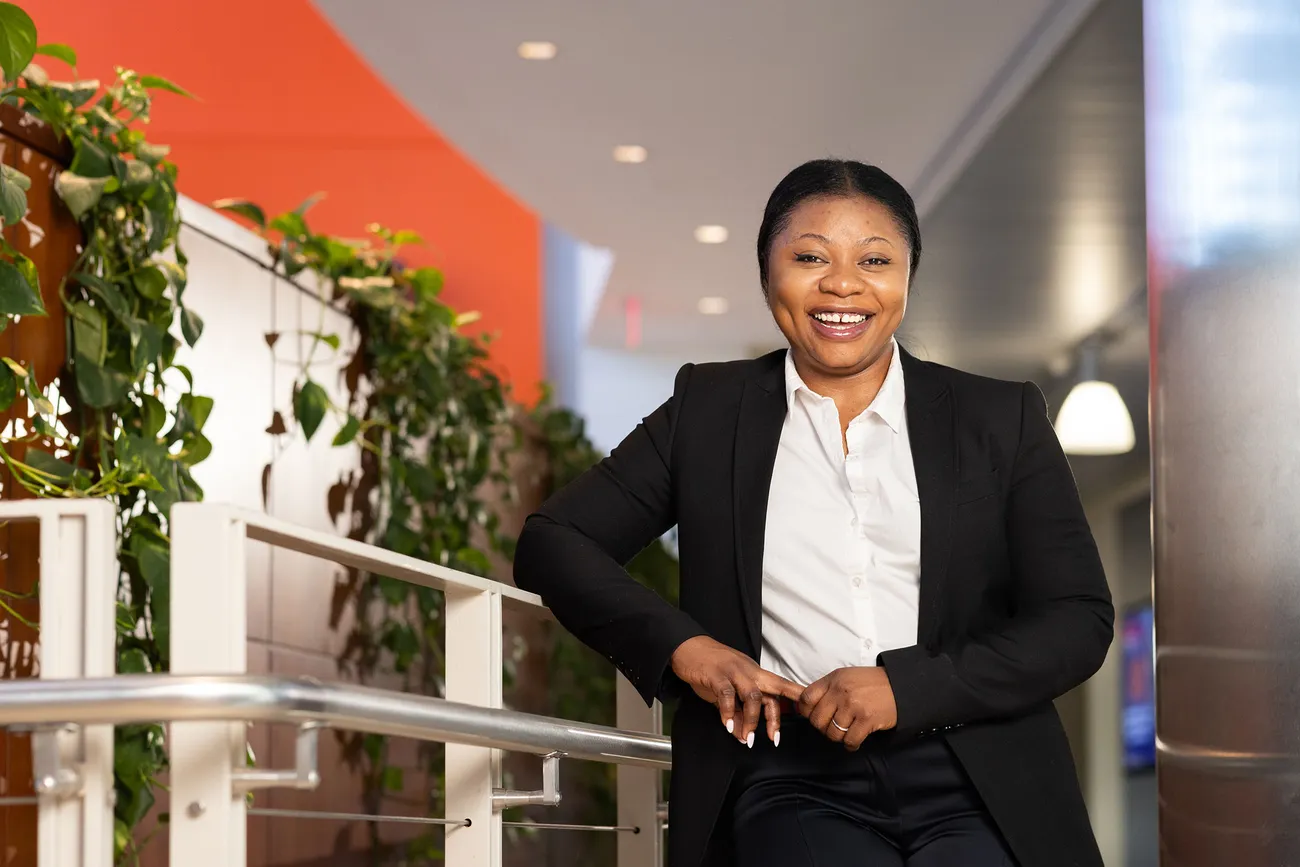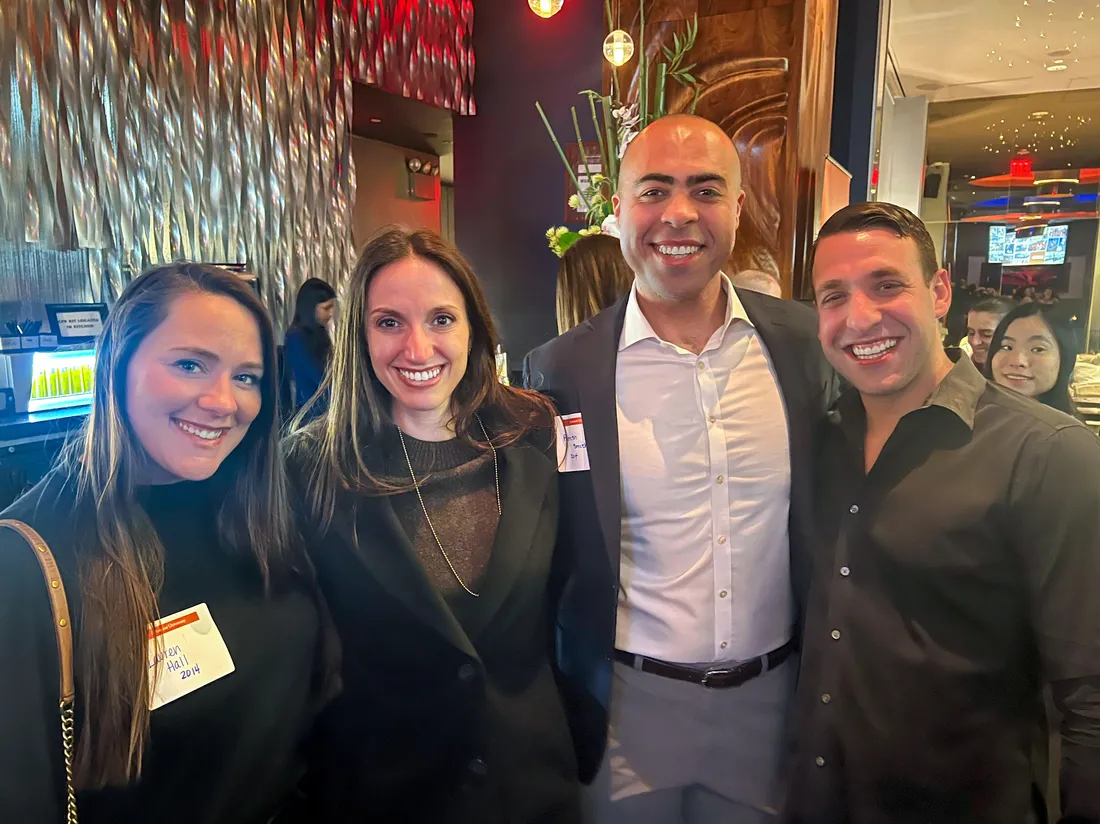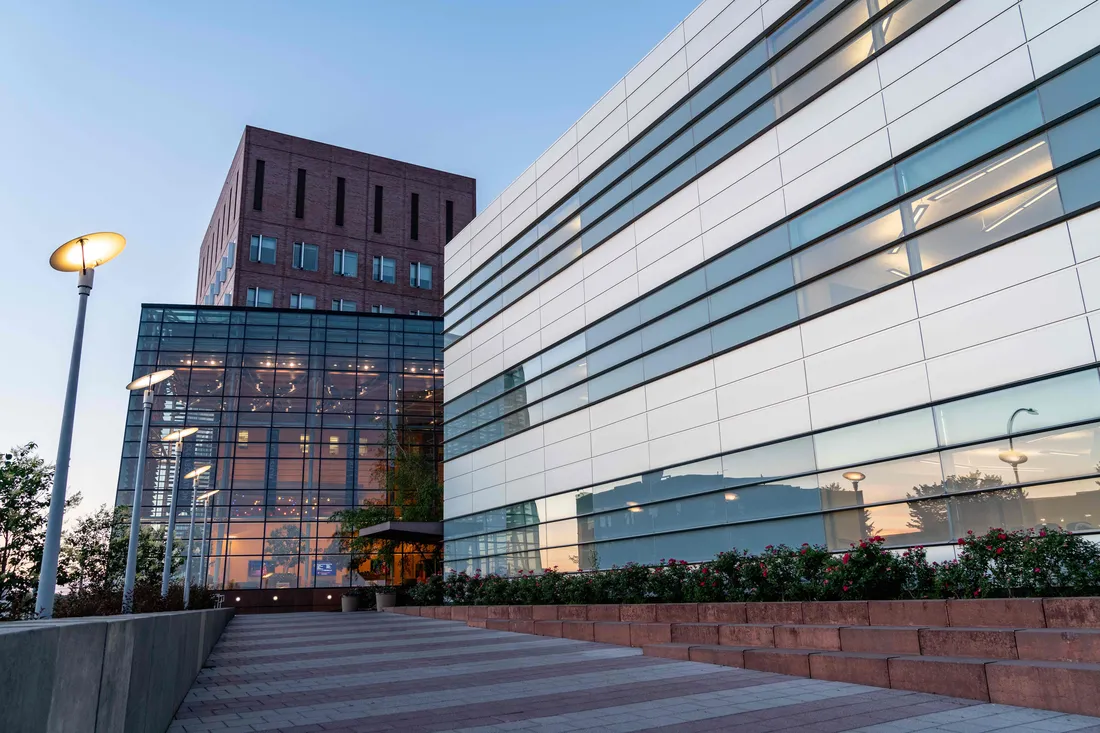When Tosin Alabi G’25 was growing up in Nigeria, she saw firsthand the destructive toll that diabetes had on her father. As the disease progressed, his eyesight began to fail. He had difficulty reading and wore thick-lensed glasses that scared her. “I’m a daddy’s girl, and that was really traumatizing for me as a child,” she says. “I realized how much that shook me in my life.”
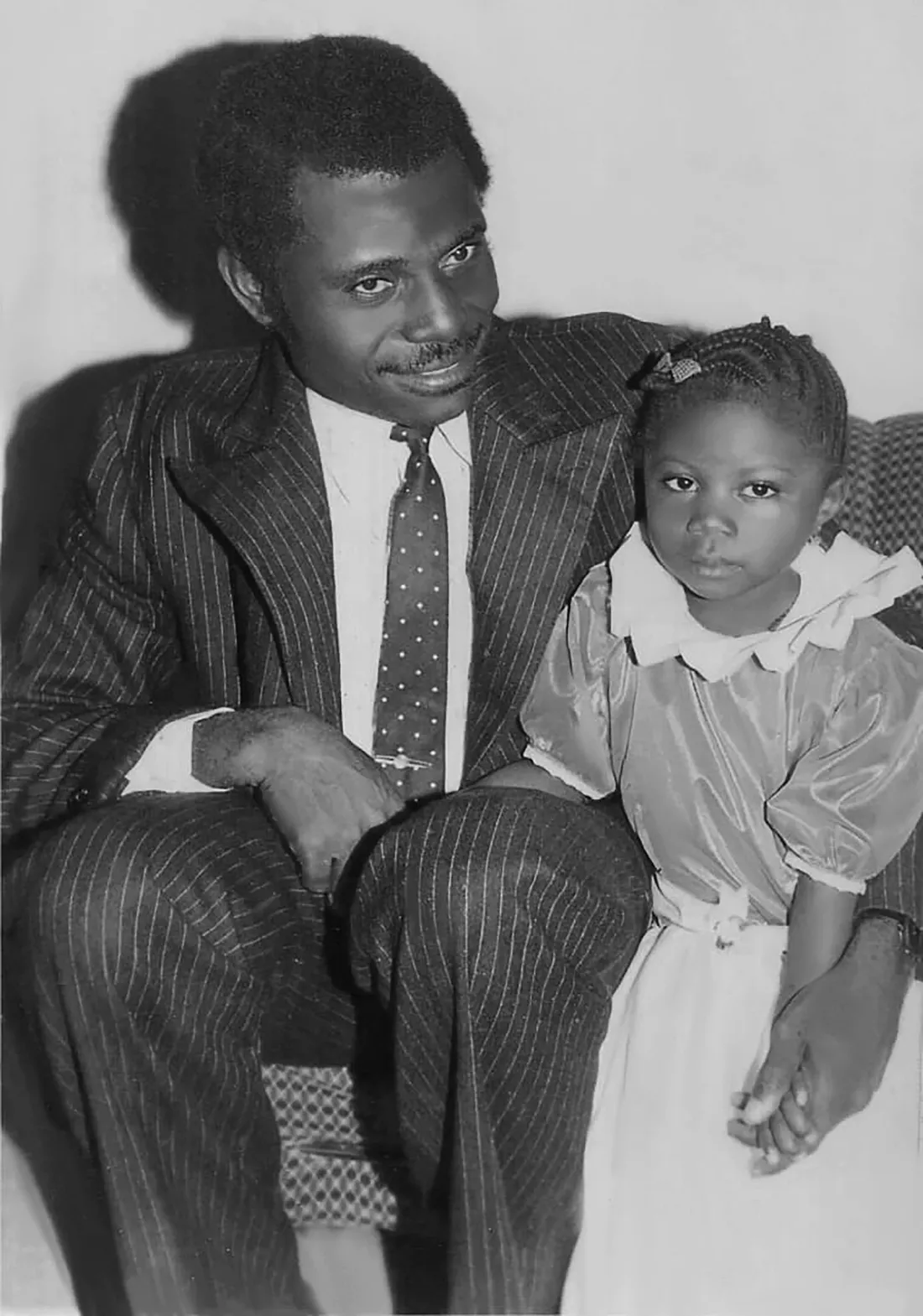
Tosin Alabi G’25, as a young child in Nigeria with her father.
Alabi was a teenager when she lost her father to complications from diabetes and knew she was not alone among children whose families were devastated by the disease. As she advanced her education and built a career in the business world, she never forgot her father’s fear of getting a diabetic foot ulcer, and the idea of helping people with diabetes stuck with her. Now she’s come up with an innovative technology to pursue her passion for improving the health and lives of diabetes patients. “The mission is really dear to my heart,” she says, adding that diabetes also claimed the life of her boyfriend’s father.
That mission inspired Alabi, an MBA candidate at Syracuse University’s Whitman School of Management, to establish Diabetec, a health-care startup focused on developing “smart socks” to detect and monitor diabetic foot ulcers—open wounds or sores that can lead to further medical complications, resulting in amputation and even death. Diabetes prevalence has been steadily increasing worldwide. According to a study funded by the Gates Foundation, there were 529 million people living with diabetes in 2021, and that figure is projected to climb to more than 1.3 billion people by 2050.
Slipping Into Smart Socks
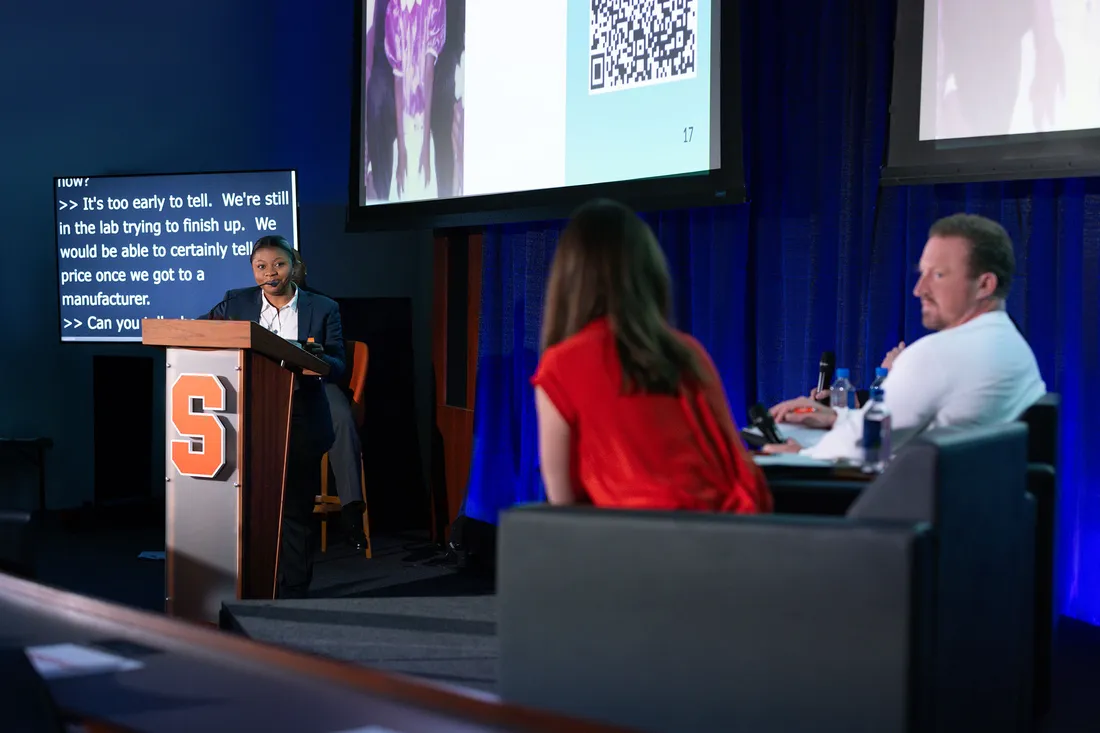
Alabi (left), an MBA candidate at the Whitman School of Management, pitches her idea for an innovative technology to help diabetes patients to judges at the Orange Tank competition last November.
The smart socks prototype—for which she’s received a provisional patent—features wireless sensors that collect physical data unique to each wearer in real time from the feet, including temperature, moisture, pressure and inflammation. Integrated with a mobile application and artificial intelligence analytics, the information is shared with the patient’s physician, and the patient is alerted when an in-person appointment is needed. The data will also help inform where an ulcer may form on the foot. “It could be closer to the toe or toward the heel, so you can tell precisely what part is prone to early signs of a diabetic foot ulcer,” Alabi says.
Alabi originally launched Diabetec with the concept for a smart-sensor bandage for foot ulcers, but conversations with SUNY Upstate Medical University doctors inspired her to pivot to smart socks, realizing they would be more impactful with early detection. She also plans to create a portable device with similar functions. “Our strategy is a preventive approach to help people have their loved ones around much longer than I had my dad,” she says.
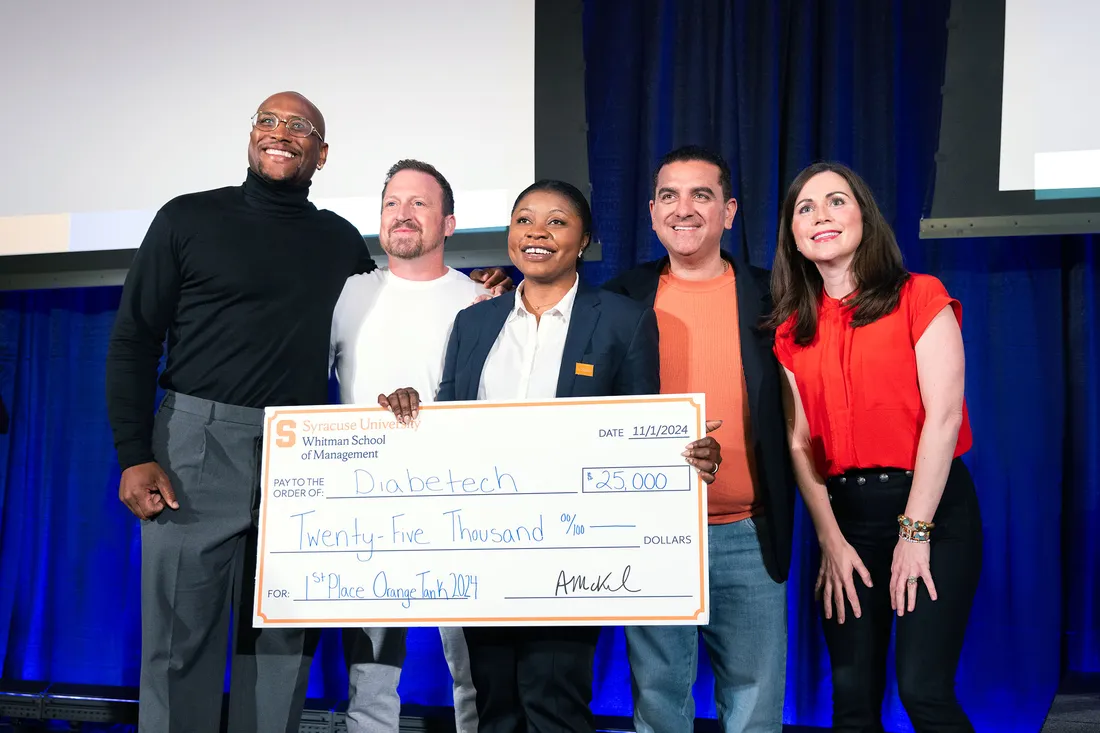
Alabi poses with the Orange Tank judges after being awarded the $25,000 first-place prize in the prestigious competition. The judges (from left) included culinary entrepreneur Derrell Smith ’10, G’13, entrepreneur and philanthropist Vinny Lobdell Jr., celebrity baker Buddy Valastro and Bespoke Beauty Brands CEO Stacey Tank ’02.
Alabi’s relentless drive and commitment truly set her apart. She has raised an impressive $40,000 for Diabetec across nine pitch competitions, including a $25,000 first-place prize at the prestigious Orange Tank competition last November. On that same day, she won $5,000 in an Orange Innovation Fund pitch competition. “Working on the project has helped me evolve and become a little fearless,” she says.
Pursuing Education and Entrepreneurship
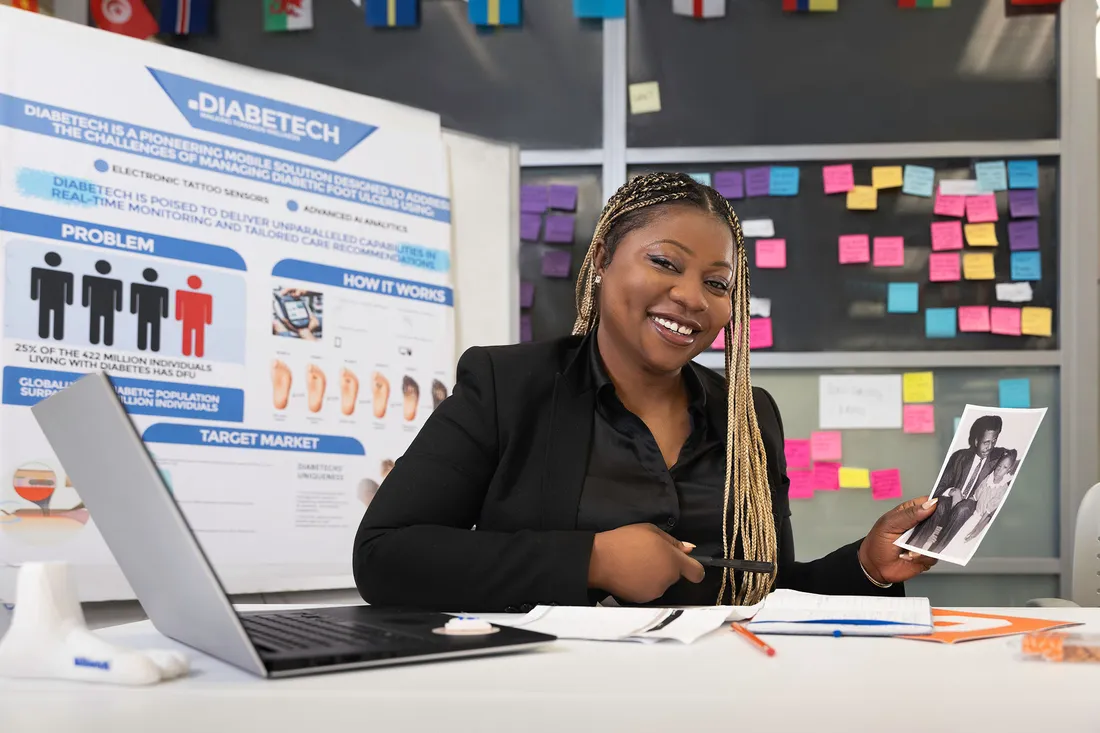
At work in the Blackstone LaunchPad at Syracuse University Libraries, Alabi displays the photo of her and her father whose battle with diabetes inspired her to pursue her passion for improving the lives of diabetes patients through her “smart socks” technology.
Education and entrepreneurship have long gone hand-in-hand for Alabi. Her parents were academic lecturers in Nigeria. Her dad also ran a bus transportation company and instilled a business acumen in her. “We learned to manage business and money early,” says Alabi, whose high school projects included using a home computer to design and print tickets for a school party and creating a website for a business that failed to pay her in full—an early lesson she hasn’t forgotten.
I have found family in so many people here in Syracuse. It’s been a wonderful experience.
Tosin Alabi G'25
Alabi journeyed to London for college, earning a bachelor’s degree in computing and software engineering from the University of Greenwich and a master’s in information technology (IT) from The Open University. As Alabi furthered her education, she took on seasonal business projects, side hustles, business ventures and corporate work. She founded Affordables Nigeria, an e-commerce company, worked in the IT field and served as a business analyst for Deloitte and other entities. “I’m a business person at heart,” she says. “But want a business that will also make a huge impact.”
Connecting With a Like-Minded Community
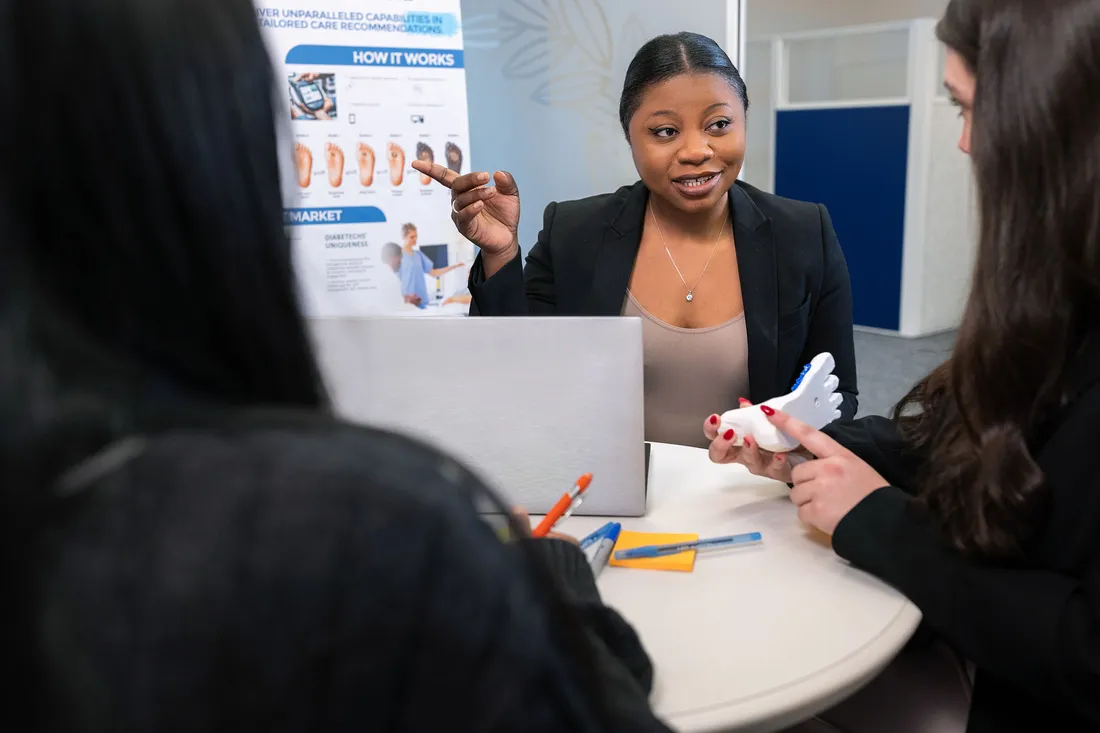
Alabi served as an entrepreneur-in-residence at the Couri Hatchery, where she mentored students and developed her idea for Diabetec.
In Whitman’s MBA program, Alabi saw the perfect opportunity to pursue her passion for helping diabetic patients improve their lives. She has connected with like-minded people, tapped their knowledge and built a supportive network. “I have found family in so many people here in Syracuse,” she says. “It’s been a wonderful experience.”
On campus, she shared her expertise mentoring students as an entrepreneur-in-residence at Whitman’s Couri Hatchery. She also worked hard on developing her idea for Diabetec before bringing it to Couri program manager Indaria Jones, who encouraged her and connected her with the University’s entrepreneurship ecosystem.
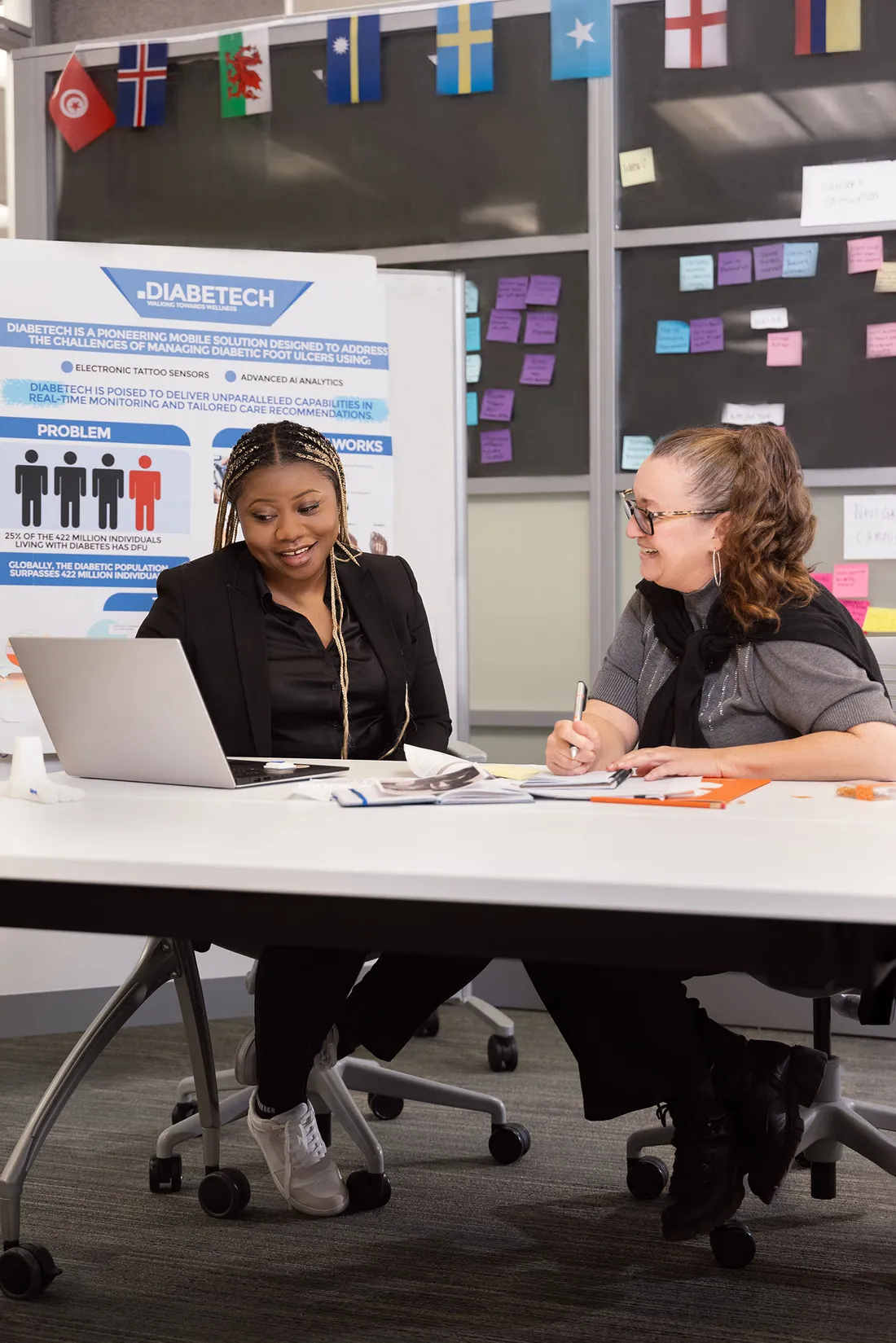
Alabi talks with Blackstone LaunchPad Director Traci Geisler. Alabi appreciates all the guidance she’s received from members of the University’s entrepreneurship community.
As Alabi’s vision for Diabetec unfolded, she participated in the University’s National Science Foundation Innovation Corps program and received guidance from Whitman adjunct professor Eric Alderman; Traci Geisler, director of the Blackstone LaunchPad at Syracuse University Libraries; Linda Dickerson Hartsock, advisor for strategic initiatives at the University; and adjunct professor David Eilers of the College of Law’s Innovation Law Center who assigned her to projects with different medical companies. “That really broadened my knowledge,” she says. “I saw how they were running their businesses and learned a lot from that, and I also interacted with lawyers there.”
Moving forward, Alabi continues to draw on the resources and support of the entrepreneurship community as she works to bring her smart socks technology to market. “I knew this project would only be possible if I get the right people around me,” she says. “Many families are impacted by diabetes, so I knew if I tell people my mission, they will buy into it and be helpful. And that has been the story.”

